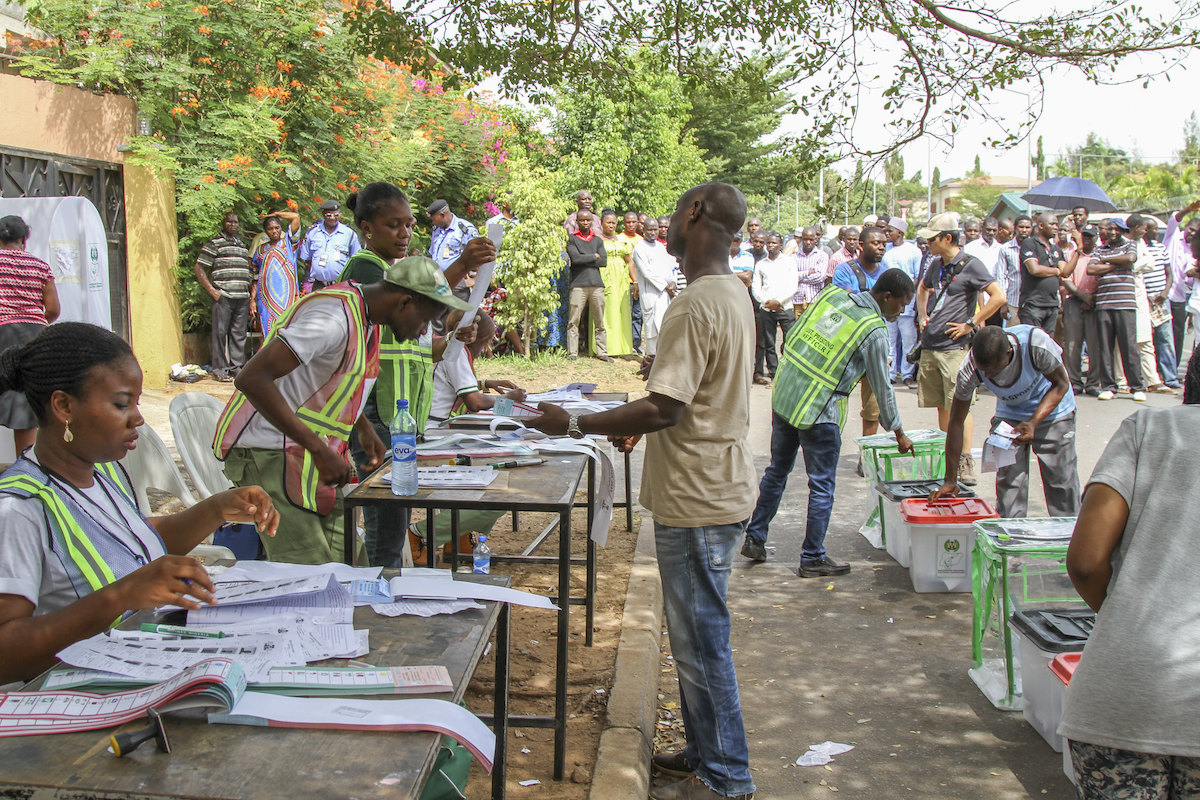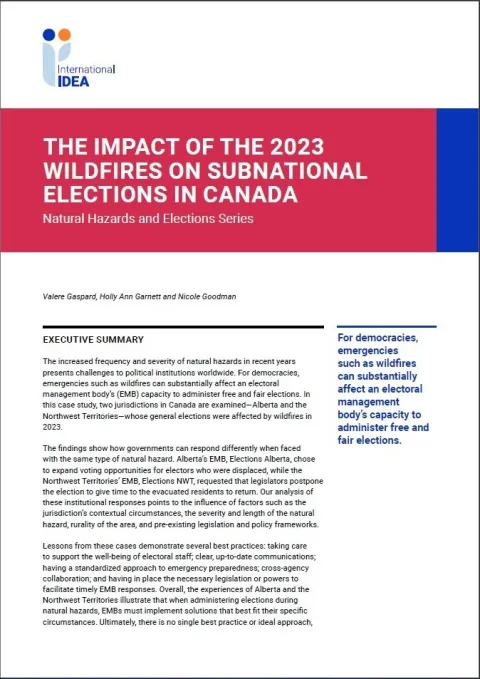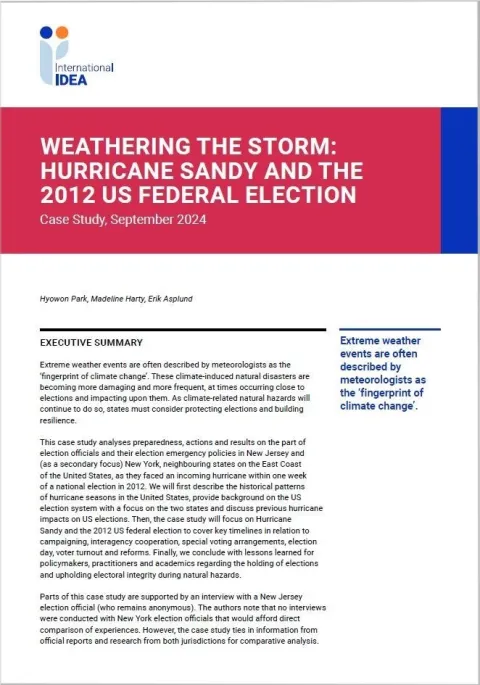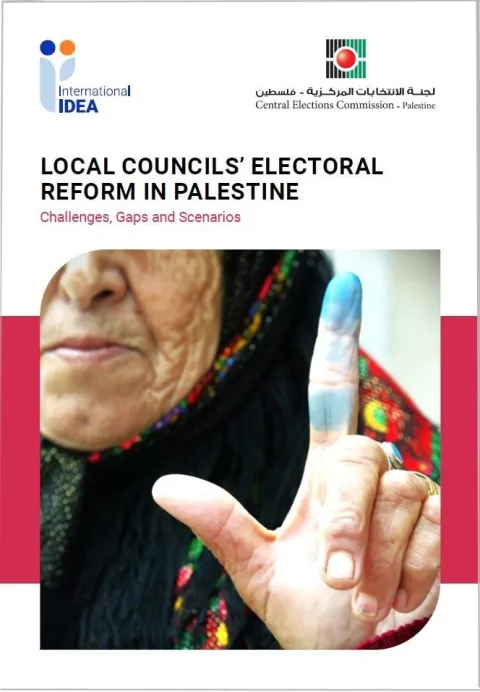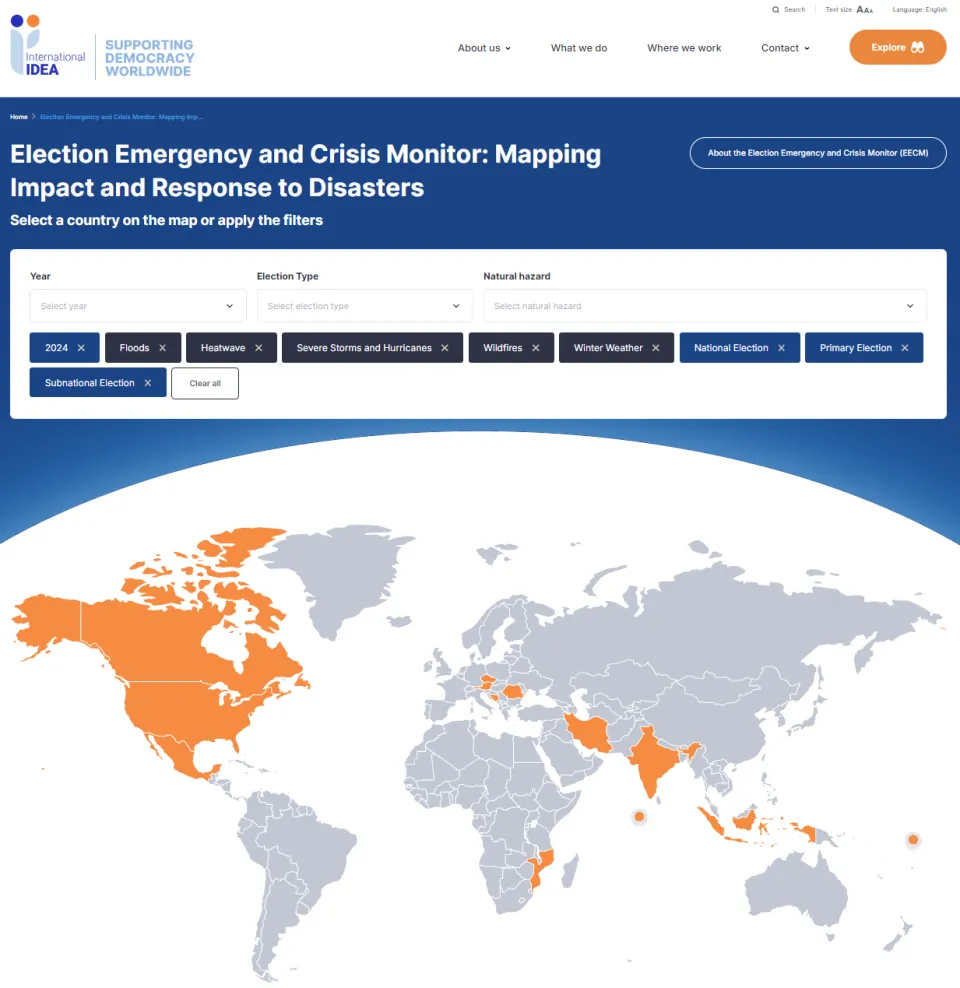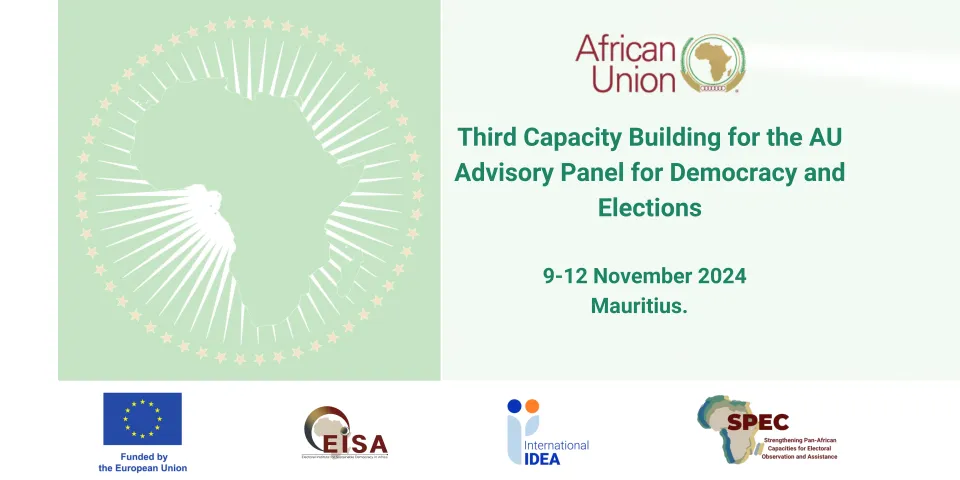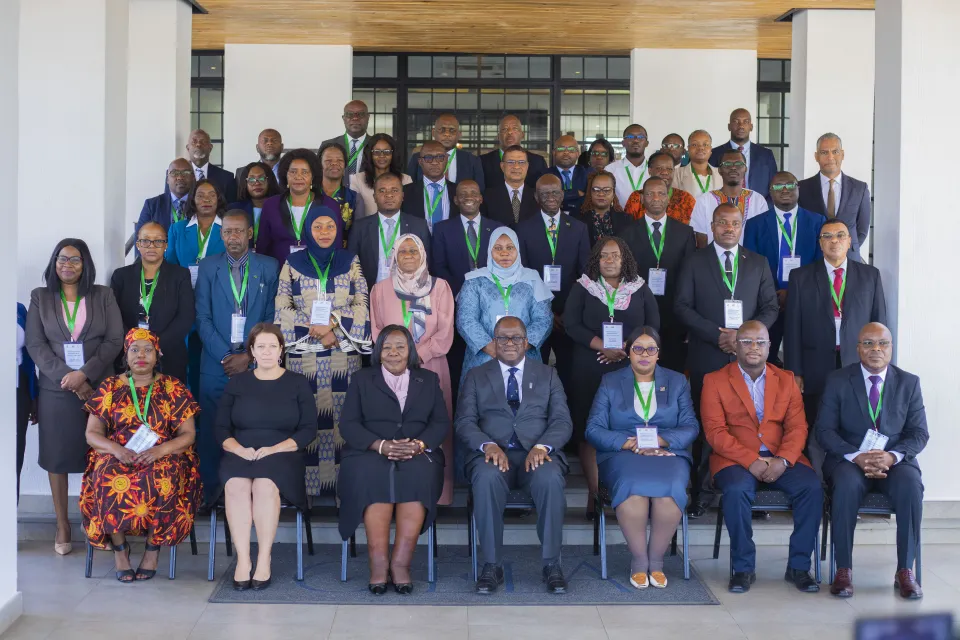Natural Hazards and Elections in India: Lessons in Adaptation and Mitigation
India faces extremely high exposure to ecological threats and, therefore, it is important to consider the effects of natural hazards on electoral processes in the country. This case study explores adaptive measures adopted by the Electoral Commission of India (ECI) to safeguard the electoral process from natural hazards on the subnational and national levels. The paper goes on to explore environmental efforts introduced by the ECI with a focus on electronic voting machines, the ban on single-use plastics, management of biomedical waste and the introduction of ‘green elections’.
For other case studies on this topic please visit International IDEA’s Natural Hazards and Elections landing page.
Details
Contents
Introduction
1. Institutional and legal context
2. Measures on prevention and adaptation applied at the subnational level
3. Mitigation measures to reduce carbon emissions during elections
4. Conclusion and lessons learned
References
Abbreviations
About the author
Give us feedback
Do you have a question or feedback about this publication? Leave us your feedback, and we’ll get back to you
Send feedbackNatural Hazards and Elections in India: Lessons in Adaptation and Mitigation
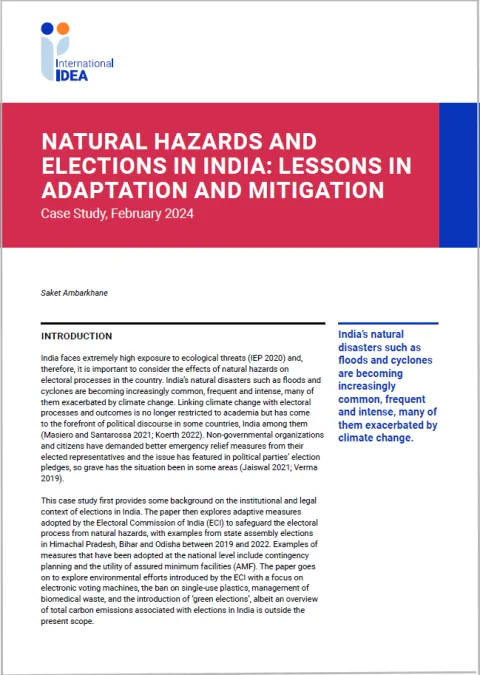
| Total views | 2102 |
|---|---|
| Downloads | 112 |
| Rating |
Give us feedback
Do you have a question or feedback about this publication? Leave us your feedback, and we’ll get back to you
Send feedback